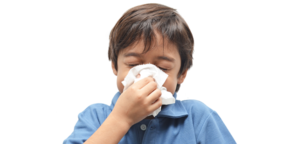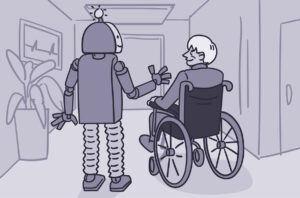Pneumonia
- Acute infection of lung parenchyma
- Associated with significant morbidity and mortality rates
- Pneumonia and influenza are 8th leading cause of death in the U.S.
Etiology
- Likely to result when defense mechanisms become incompetent or overwhelmed
- Decreased cough and epiglottal reflexes may allow aspiration
- Mucociliary mechanism impaired
- Pollution
- Cigarette smoking
- Upper respiratory infections
- Tracheal intubation
- Aging
- Chronic diseases suppress immune system
- Chronic diseases suppress immune system
- Three ways organisms reach lungs:
- Aspiration from nasopharynx or oropharynx
- Inhalation of microbes present in air
- Hematogenous spread from primary infection elsewhere in body
Types of Pneumonia
- Can be classified according to causative organism
- Clinical classification:
- Community-acquired (CAP)
- Occurs in patients who have not been hospitalized or resided in a long-term care facility within 14 days of the onset of symptoms
- Can be treated at home or hospitalized dependent on patient condition
- Empiric antibiotic therapy started ASAP
- Hospital-acquired (HAP)
- HAP: Occurs 48 hours or longer after hospitalization and not present at time of admission
- Ventilator-associated (VAP): Occurs more than 48 hours after endotracheal intubation
- Associated with longer hospital stays, increased costs, sicker patients, and increased risk of morbidity and mortality
- Community-acquired (CAP)
- Multidrug-resistant (MDR) organisms are major problem in treatment
- Staphylococcus aureus
- Gram-negative bacilli
- Risk factors
- Advanced age
- Immunosuppression
- History of antibiotic use
- Prolonged mechanical ventilation




